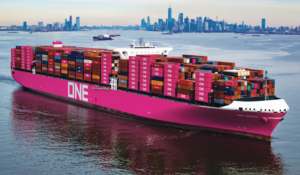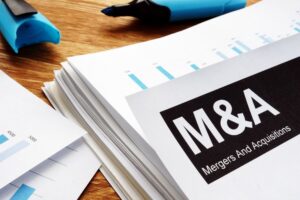 The Olympic and Paralympic Games were postponed for one year due to the spread of COVID-19, and will start on July 23rd (Fri), but it has been decided on July 8th (Thu) that the fourth state of emergency will be issued to Tokyo on July 12th (Mon). The Games will be held under an abnormal circumstance. The Delta variant, first identified in India, is spreading and games held in Tokyo and its suburbs will be held without spectators. Although the worst situation of cancellation was avoided, considering the current situation in which Europe and the United States have promoted the vaccination and achieved economic recovery by acquiring the herd immunity, it is a pity that the Japanese government did not put first priority on vaccination as soon as possible to focus on herd immunity acquisition. In order to play the important role in holding the Olympic and Paralympic Games once every four years as the host country, there must have been some time to be prepared after postpone of one year. Given the current situation in Europe and the United States where the herd immunity rate is rising, the economic activity is rapidly being eased, and daily operations are being regained, it is essential to raise the population immunity rate in order to prevent the pandemic of COVID-19. By doing so, tourists from abroad and spectators of the Olympic and Paralympic Games should have been welcomed without any problems, just like before. Furthermore, I think we could have managed it without requesting restaurants and shops to refrain from serving alcoholic beverages or to limit opening hours. I suppose Japan’s economic activities could have been recovered earlier, to hold the international events of Olympic and Paralympic Games with Japanese hospitality safely. Obtaining a herd immunity rate is also effective in preventing variant virus infection. It is necessary to raise the herd immunity rate as soon as possible in order to take measures against the Delta variant after the Olympic and Paralympic Games.
The Olympic and Paralympic Games were postponed for one year due to the spread of COVID-19, and will start on July 23rd (Fri), but it has been decided on July 8th (Thu) that the fourth state of emergency will be issued to Tokyo on July 12th (Mon). The Games will be held under an abnormal circumstance. The Delta variant, first identified in India, is spreading and games held in Tokyo and its suburbs will be held without spectators. Although the worst situation of cancellation was avoided, considering the current situation in which Europe and the United States have promoted the vaccination and achieved economic recovery by acquiring the herd immunity, it is a pity that the Japanese government did not put first priority on vaccination as soon as possible to focus on herd immunity acquisition. In order to play the important role in holding the Olympic and Paralympic Games once every four years as the host country, there must have been some time to be prepared after postpone of one year. Given the current situation in Europe and the United States where the herd immunity rate is rising, the economic activity is rapidly being eased, and daily operations are being regained, it is essential to raise the population immunity rate in order to prevent the pandemic of COVID-19. By doing so, tourists from abroad and spectators of the Olympic and Paralympic Games should have been welcomed without any problems, just like before. Furthermore, I think we could have managed it without requesting restaurants and shops to refrain from serving alcoholic beverages or to limit opening hours. I suppose Japan’s economic activities could have been recovered earlier, to hold the international events of Olympic and Paralympic Games with Japanese hospitality safely. Obtaining a herd immunity rate is also effective in preventing variant virus infection. It is necessary to raise the herd immunity rate as soon as possible in order to take measures against the Delta variant after the Olympic and Paralympic Games.
June employment statistics released by the US Department of Labor on the 2nd July indicate that the number of workers in the non-farm sector increased by 850,000. The unemployment rate was 5.9%, 0.1% increase from the previous month. That is 6.8 million below the level before COVID-19. In addition to the difficulty of securing skilled workers, low-wage jobs with a high risk of COVID-19 infection are avoided. On the other hand, the generous benefits discourage labor motivation, resulting in labor shortages.
According to the National Retail Federation (NRF), people are strongly motivated for consumption, and increasing online shopping and same-day delivery are boosting import demand. It is expected that strong imports will continue toward the summer for a while as the inventory will be piled up for the year-end sales season.
Economic recovery is remarkable in Euro area thanks to the inoculation program acceleration. UK HIS Markit reported on the 23rd June that the Eurozone Purchasing Managers’ Index (PMI) in June reached 59.2 as a preliminary figure, which is the highest level since June 2006 before the financial crisis. The manufacturing industry maintained a high level at 63.1, the same as the previous month, and the service industry also increased by 2.8 points from the previous month to 58. It was negative growth for the two consecutive quarters, but it grew remarkably in April-June, and is expected to grow even stronger in July-September.
The Comprehensive Index of the Shanghai Containerized Freight Index (SCFI) dated July 2nd released by the Shanghai Shipping Exchange (SSE) rose 3.2% from the previous week to 3905.1, up for eight weeks in a row. The SCFI on the European route rose 4.9% from the previous week, up for two consecutive weeks, and 2.2% up to $6,655 per TEU on the Mediterranean route, up for the 14th week straight. The SCFI on the North American route rose 4.8% from the previous week to $4,944 per FEU, and 3.5% up to $9,244 per FEU on the East Coast of North America, hitting the record high of $9,244 per FEU for 13 consecutive weeks, surpassing $9,000 per FEU for the first time.
 Ocean Network Express (ONE), an integrated liner company of three Japanese shipping lines (NYK, MOL, K Line), distributed $195 million (about 21 billion yen) as a year-end dividend to the three companies on June 21st. About 500 million dollars have already been distributed at the end of February as an interim dividend for March 2021, so the total distribution will be about 700 million dollars. All three parent companies are expected to record the dividends as non-operating income in the non-consolidated financial report for the first quarter of the fiscal year ending March 2022 (April-June 2021). How devoted ONE is to the parents. ONE’s full-year 2020 results show sales increased 21.3% year-on-year to $14,397 million (approximately 1,573.3 billion yen), and net income became approximately 33 times to $3,484 million (approximately 380.7 billion yen). It was a deficit of $586 million in the first year of FY2018, a surplus of $105 million in FY2019, and exceeded $3.4 billion of surplus in FY2020.
Ocean Network Express (ONE), an integrated liner company of three Japanese shipping lines (NYK, MOL, K Line), distributed $195 million (about 21 billion yen) as a year-end dividend to the three companies on June 21st. About 500 million dollars have already been distributed at the end of February as an interim dividend for March 2021, so the total distribution will be about 700 million dollars. All three parent companies are expected to record the dividends as non-operating income in the non-consolidated financial report for the first quarter of the fiscal year ending March 2022 (April-June 2021). How devoted ONE is to the parents. ONE’s full-year 2020 results show sales increased 21.3% year-on-year to $14,397 million (approximately 1,573.3 billion yen), and net income became approximately 33 times to $3,484 million (approximately 380.7 billion yen). It was a deficit of $586 million in the first year of FY2018, a surplus of $105 million in FY2019, and exceeded $3.4 billion of surplus in FY2020.
The Nikkei reports that UK financial information firm Refinitive aggregated this year’s data up to June 17th, and found that the number of M&As in the world from January to June this year was 25,069, the first increase in three years, and the amount executed was $2.6 trillion (approximately 290 trillion yen), 2.3 times that of the same period of the previous year. In particular, M&As in the United States was 3.8 times year-on-year, with executions reaching $12,929 trillion.
 The acquisition of a container leasing company has occurred after a long time. It was announced on June 18th that Mitsubishi HC Capital Co., Inc., the parent company of Beacon Intermodal Leasing, LLC, the world’s sixth largest container leasing company, acquired CAI International, Inc, the world’s fifth largest, for about $1.18 billion (about 122 billion yen). Mitsubishi HC Capital was established in April this year through the business integration of Mitsubishi UFJ Lease & Finance Company Limited and Hitachi Capital Corporation. Mitsubishi UFJ Lease & Finance acquired Beacon, USA in November 2014 and entered the marine container leasing business. Beacon expanded its operation rapidly to the scale of 1 million TEU in 6 years. However, although the scale of 1 million TEU was necessary, it was still not a full-fledged scale, and further expansion was desired as soon as possible. Meanwhile, CAI was listed on the NYC Stock Exchange but was facing a decline in the container leasing business due to the global spread of COVID-19 in the first half of 2020, trying to optimize its business by selling its logistics business in August 2020 and the railroad freight car lease in December. We believe the interests of both parties matched in this acquisition.
The acquisition of a container leasing company has occurred after a long time. It was announced on June 18th that Mitsubishi HC Capital Co., Inc., the parent company of Beacon Intermodal Leasing, LLC, the world’s sixth largest container leasing company, acquired CAI International, Inc, the world’s fifth largest, for about $1.18 billion (about 122 billion yen). Mitsubishi HC Capital was established in April this year through the business integration of Mitsubishi UFJ Lease & Finance Company Limited and Hitachi Capital Corporation. Mitsubishi UFJ Lease & Finance acquired Beacon, USA in November 2014 and entered the marine container leasing business. Beacon expanded its operation rapidly to the scale of 1 million TEU in 6 years. However, although the scale of 1 million TEU was necessary, it was still not a full-fledged scale, and further expansion was desired as soon as possible. Meanwhile, CAI was listed on the NYC Stock Exchange but was facing a decline in the container leasing business due to the global spread of COVID-19 in the first half of 2020, trying to optimize its business by selling its logistics business in August 2020 and the railroad freight car lease in December. We believe the interests of both parties matched in this acquisition.
CAI is a container leasing company with a history of 32 years. It was founded in August 1989 by Mr. Hiromitsu Ogawa from ITEL, and is the first Japanese owner container leasing company to be listed on the NYC Stock Exchange. That CAI was acquired by a Japanese bank. CAI is a reservoir of talent. It will be interesting to see how the parent company, Mitsubishi HC Capital, will combine these two leasing companies and start them as a new container leasing company with an operation scale of 3 million TEU. I would like to send a yell to a container leasing company that is the second largest group in the world with Japanese financial capital.
The new container price at the end of June reached $4,000 per 20f finally, for the first time. Production in June was 681,017 TEU (Dry: 634,076 TEU, Reefer: 46,941 TEU). The factory inventory at the end of June was 442,744 TEU (Dry: 342,710 TEU, Reefer: 100,034 TEU). Considering the current strong demand, there is no reason for container manufacturing prices to fall.
(Translated by Ms. Chizuru Oowada)